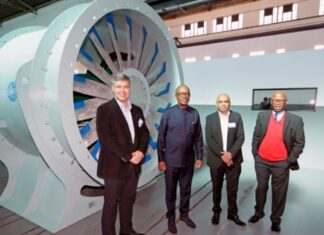The advent and impact of COVID-19 in South Africa has amplified the systemic socio-economic challenges faced by our country. But it also offers an opportunity to rebuild our economy in a more sustainable manner.
Resource Efficient and Cleaner Production (RECP) might be a very technical and industrially focused methodology, but the concept also embodies the principle of team work in order to achieve more with less, and that is what we need as a country.
RECP is defined as a systematic and integrated approach to managing energy, water, environmental and financial resources, eliminating or minimising waste and emissions to the environment, on a sustainable and cost-effective basis.
The NCPC-SA supports industry to implement RECP through thematic projects like the Industrial Energy Efficiency and the Industrial Water Efficiency Projects and is available to provide assistance, advice and technical support to South African industries.
The potential to save resources and related costs through operational improvements is evident in the NCPC-SA’s results. In the past five years, the Centre has assessed 739 company sites of all sizes, from massive steelworks to B&Bs. Identified RECP opportunities in this time period are valued at an average of R1.9 million per company, per year. This is mostly in energy, but water and material savings also feature strongly.
Sadly, the majority of companies do not implement the majority of opportunities, for many reasons. But when they do, the results are a testament to what can be achieved with a collective effort. Last year, one company supported by the NCPC-SA in the Western Cape measured water savings of 60.44 million litres over 16 months. That is the water consumption target for the entire City of Cape Town for one week. The impact of hundreds of companies doing likewise speaks for itself.
Companies implementing broader RECP implementation have enjoyed energy and water savings
through an integrated approach. Atlantis Foundry, for example, realised water savings of 4.9 million litres and energy savings of 3 203 MWh, which combined saved the plant R 12.4 million. In under two years.
Savings are just as possible in smaller companies and less resource-intensive sectors. Excellent Meat Packer, part of Excellent Meat Holdings group achieved water savings of
23 million litres and 120 MWh of energy that resulted in combined R1.5 million in monetary savings.
Due to the success of the NCPC-SA projects the Centre recognises the need to advocate for concentrated and inclusive industrial development in a struggling and post COVID-19 national economy.
The NCPC-SA realises that companies of all sizes across South Africa may need additional advice as operations return to the new normal. For more information, interested parties can
- Visit www.npcp.co.za or email ncpc@csir.co.za.















